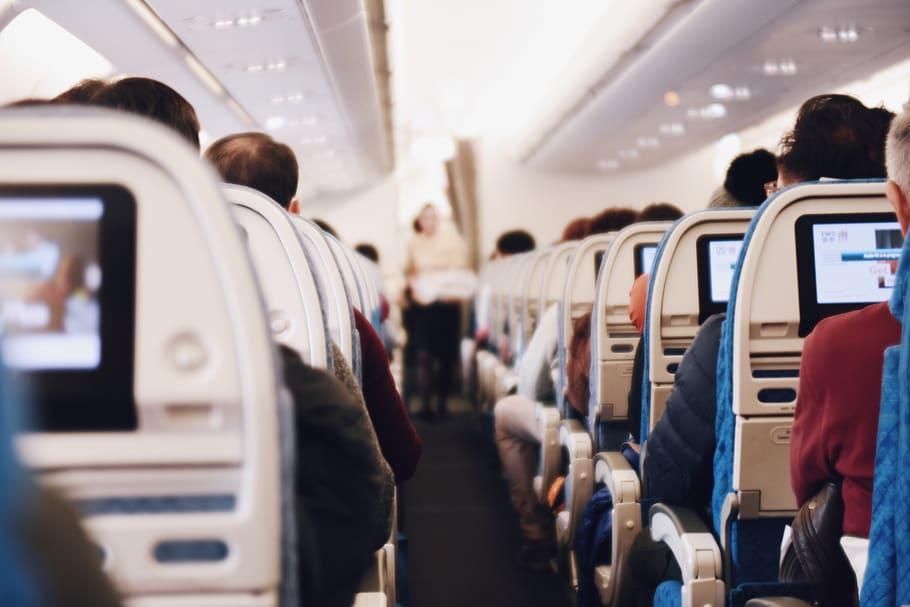
A series of high-profile airline failures in 2019 caused the proportion of impacted passengers to reach more than double the nine-year average, according to a study prepared for the European Commission.
Between 2011 and October 2019, around 5.6 million EU passengers were affected by airline insolvencies, according to the ‘Study on the protection of EU air passenger rights’ by London-based consultancy firm Steer.
“This is equivalent to 0.04% of total EU passengers during this period,” Steer said. “In 2019, this has grown to 0.14% due to the bankruptcies of Thomas Cook, Germania, Aigle Azur and WOW Air.”
Steer built the data for the report from a number of sources, including Official Airline Guide (OAG) data and verification from stakeholders, because there is no comprehensive source for EU airline insolvencies.
The report estimates that 87 scheduled EU airlines ceased operating between Jan. 1, 2011 and Oct. 1, 2019. On average, there were 9.7 airline failures per year, hitting a peak of 19 airlines in 2012. However, 2019 stood out for the sheer size of the airline failures.
Charter and leisure airlines, including Thomas Cook and Monarch, made up 49% of airline insolvencies between 2011 and 2019. Scheduled short-haul airlines, like Adria Airways, made up a further 38%. LCCs and “scheduled mixed” carriers accounted for 10% and 2% of the total.
“Note that this does not necessarily mean that the largest number of passengers, nor the greatest impacts were the result of charter and scheduled short-haul airlines, as capacity offered by the different carriers varies,” Steer said.
Over the period 2011-June 2019, these failures cost each affected passenger €431 ($480), 83% of which was not recoverable through existing protection measures.
“It has been estimated that between only 12% and 18% of total costs are recoverable, depending on airline type and originating country of the consumer,” the report said.
Steer observed that there are only “partial solutions” for passenger-protection in the event of airline insolvencies, which depend on where and how passengers book their flights. For example, the current EU framework does not provide any direct insolvency protection for flight-only tickets.
“With four bankruptcies over a very short period of time, the European Parliament is keen to remedy this patchy level of protection and asked for the creation of guarantee funds and insurance contracts for that purpose,” Steer said. “This should be further considered by the Commission, in particular taking into consideration the recommendations made by the UK Insolvency Review in 2019 to establish a UK-wide protection fund.”
Steer suggested several options to improve the situation, including clearer customer guidelines, a more EU-wide approach to credit-card protection, improvements to rescue fares and the extension of existing insolvency protection measures.
The consultancy firm also suggested several “indirect measures” to increase recoverable costs.
“Airline bankruptcies rarely happen instantaneously and are often a culmination of events, which place financial stress on an airline over a period of time. With greater visibility of these issues, the relevant authorities will be more aware of impending bankruptcies and will be able to respond appropriately by ensuring that as few passengers are affected as logistically possible and that effective repatriation measures are in place for stranded passengers,” Steer said.
Regulators could require airlines to submit more information on their “financial robustness” over the coming year, along with forward-booking data to show the scale of affected passengers in the event of bankruptcy.
Steer said passengers could also be prevented or dissuaded from making further bookings in the hours before the airline officially declares bankruptcy, or money collected by the airline could be stored in a trust account, which could be refunded or used for repatriation.
“Primera Air was widely criticized for accepting bookings right up until the public announcement of the bankruptcy, despite knowing internally that the bankruptcy was inevitable, whilst Monarch increased fares substantially in the 24 hours prior to its bankruptcy to price itself out of the market,” the report said.
Repatriation measures could also be better coordinated, with the relevant authority taking responsibility for finding and negotiating tickets for affected passengers.
Another suggestion was that airlines should be allowed to keep their fleets flying for a limited amount of time to reduce the number of stranded passengers, or that an airline could be granted a 12-month wind-down period.
“As a sudden revocation can lead to disrupting effects on the market,” Steer said. “Licensing authorities may grant a temporary license for a duration not exceeding 12 months to the carrier, provided safety is not at risk and there is a realistic prospect of financial reconstruction within that time period.”
Finally, the report flagged an issue with duty of care in the event of a major failure, because of the cross-border nature of the EU airline industry.
“For example, the three largest low-cost carriers in Europe—Ryanair, easyJet and Wizzair—are headquartered in Ireland, the United Kingdom and Hungary respectively, but all operate many routes both domestically and internationally in and between other member states. If a bankruptcy were to occur, in these situations a clear line of responsibility would need to be established as to whether the relevant authority in the country of departure, or the country where the airline is domiciled would be responsible.”






Comments